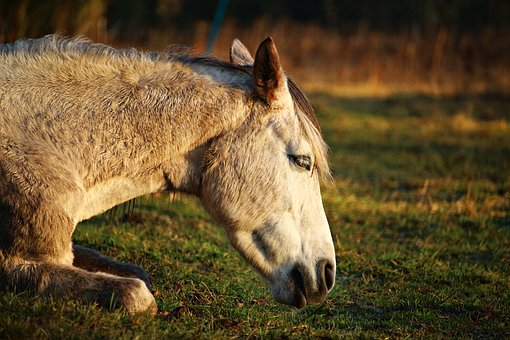Horse Coughing; Causes and Preventions
As winter approaches and we prepare our horses and their stables for the cold weather, horse coughing can become a part of everyday life. Winter is a common time for horse coughing to increase, due to the extended periods of time horses are kept inside. However, in a small number of cases your horse’s cough could be suggestive of something more serious. Respiratory diseases are some of the most commonly encountered diseases in horses and can result in poor performance and lots of time off. Therefore, in this article, I will outline the common causes of horse coughing and what you can to do prevent or help it.
Causes of Horse Coughing
- A build-up of phlegm in the trachea.
- Allergies to dust or mould spores found in bedding or food that can irritate the linings of the lungs, causing coughing.
- Bacteria can cause coughing episodes in horses.
- Food ending up in the Trachea instead of the oesophagus will cause irritation to the trachea, producing a cough.
- Lungworm can cause coughing but this is unusual in horses with a good worming history.
- Induced pulmonary haemorrhage – this is caused by horses who undertake intense exercise and is commonly seen in racehorses.
- Equine influenza and strangles are both highly contagious and can spread quickly within a group.
Common Symptoms of Horse Coughing
- Coughing during exercise – this could be environmental but if it persists it can signal the presence of an infection.
- Phlegm found in the stable is a sign that your horse likely has a cough as the result of an infection within the lungs.
- Ill-Health – a horse who appears depressed, has a high temperature or won’t eat may have a respiratory infection.
How to Prevent Horse Coughing
If your horse has a persistent cough, there are methods you can take to encourage a full recovery. Keeping your horse’s vaccinations up to date is important as it helps reduce the spread of disease and the severity of symptoms. Good hygiene measures are also imperative to limit the spread of sickness from infectious animals. However, there are also methods of prevention you can carry out to help reduce the symptoms.
Dust-Free Bedding
Thoroughly check your horse’s bedding and whether or not it is dust free. If your horse is susceptible to dusty bedding, reacting badly, then it might be worth looking for alternative such as straw or rubber matting. You should also avoid mucking out the stable with your horse in the stable as this can mix up the dust in the air and worsen his cough.
Soak the Hay
If your horse is coughing as a reaction to dust being present, it is important to soak for your hay for 5 minutes – even if it is high quality. Soaking the hay will avoid the risk of your horse inhaling dust. Immediately after soaking your hay, you should feed your horse. Leaving your soaked hay all day encourages microbes to breed and is not healthy to feed to your horse.
Improve Ventilation
For a coughing horse, it is important to improve ventilation – especially during the winter when horses are kept inside more frequently. Ventilation is extremely important to maintain the health of your horse and can help clear a cough.
Turn Your Horse Out
Frequently turning your horse out to pasture can help relieve the symptoms of coughing or allergic reactions. With his head in a natural grazing position, your horse can drain his airways efficiently. Asthma and heaves are caused by a horse’s environment and, in these cases, prevention is always better than cure.
Horse Supplements
You can help improve your horse’s health with natural oral feed supplements. These can be easily added into any feed programme and are highly palatable, having significant benefits for horses with respiratory problems. They also help improve circulation, reduce inflammation and help boost the immune system to relieve any symptoms of coughing.
Recognising Coughing Emergencies
The most common cause of a coughing emergency is a choke and it is caused by food material getting stuck in the oesophagus. Although it doesn’t affect the horse’s respiratory system, it can cause your horse to cough quite violently. Choke will commonly occur during or immediately after your horse has eaten, causing the horse to cough violently. If you see this happen, this is an emergency and your vet must be contacted immediately.
Contact Us Today
Whatever the cause of your horse’s coughing, reducing the dust in your horse’s environment will be extremely beneficial in helping him stay healthy. Keeping the stable environment clean, mucked out and dust free can have a significant impact on your horse, relieving him from his respiratory issues.
Here at Prime Stables, we encourage everyone to be actively aware of their horse’s health, knowing what signs to look out for signalling there is something wrong. If you do see anything amiss, or your horse has a persistent cough, please contact your vet immediately as continued horse coughing can cause long lasting side effects.


